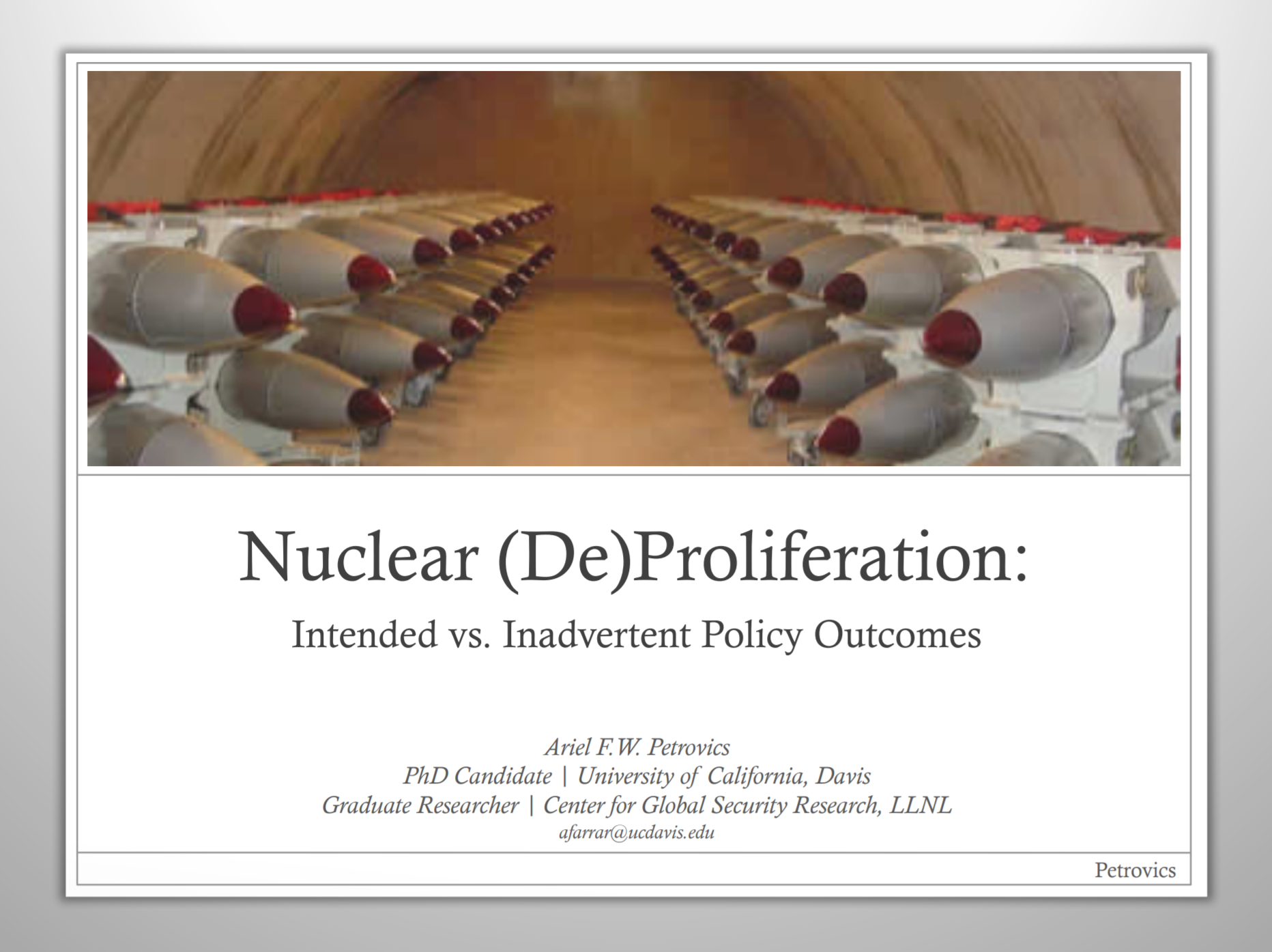Nuclear (De)Proliferation: Intended vs. Inadvertent Policy Outcomes
Nuclear (De)Proliferation: Intended vs. Inadvertent Policy Outcomes
SMA hosted a speaker session with Ariel Petrovics (Lawrence Livermore National Laboratory) as a part of its SMA Korea Strategic Outcomes Speaker Series. This speaker session supported SMA’s Korea Strategic Outcomes project. For additional speaker sessions and project publications, please visit the Korea Strategic Outcomes project page.
Date: 19 June 2018
Speaker Session Preview
SMA hosted a speaker session presented by Ms. Ariel Petrovics (Lawrence Livermore National Laboratory) as a part of its SMA Korea Strategic Outcomes Speaker Series. Ms. Petrovics spoke about her current research project, which utilizes an original cross-national dataset ranging from 1945-2012 and analyzes trends in counterproliferation efforts. She conducted this research to assess the conditions under which foreign policies will encourage nuclear reversal as opposed to accelerating proliferation. After reviewing (de)proliferation types (coercive and cooperative) and the mechanisms of effect (capability and motivation), she revealed her primary research findings, highlighting that the most common counterproliferation tactics can in some cases pose the greatest proliferation risks. Ms. Petrovics concluded the session by performing a more in-depth case evaluation of North Korea and discussing the implications of her work, along with areas for further research.
This speaker session supported SMA’s Korea Strategic Outcomes project. For additional speaker sessions and project publications, please visit the Korea Strategic Outcomes project page.
Speaker Session Audio File
Briefing Materials
Biography
Ariel Petrovics is a PhD candidate at the University of California, Davis and a researcher at Lawrence Livermore National Laboratory’s Center for Global Security Research. Her research examines the effectiveness of foreign policy strategies with specific application to national security and nuclear proliferation. Her work uses cross-national quantitative analysis and original data as well as critical case studies to address current security questions, including the effectiveness of nuclear deproliferation policies, engagement with renegade regimes, and the consequences of economic sanctions. After graduating with honors from Bucknell University, Ariel worked with American Enterprise Institute’s Foreign and Defense Policy Department under Dr. Frederick Kagan, and as a contributing author and project manager of AEI’s IranTracker and Critical Threats Project. Her work has been published in the Critical Threats Project and Berkeley’s Policy Matters Journal, and has appeared at multiple conferences including the ISA Annual Convention, WPSA, MPSA, and forthcoming at APSA. Beyond her policy interest, Ariel is also a five-time National Team athlete, representing the USA at World Cups, Pan-Am Games, and World Championships
Slides

Comments